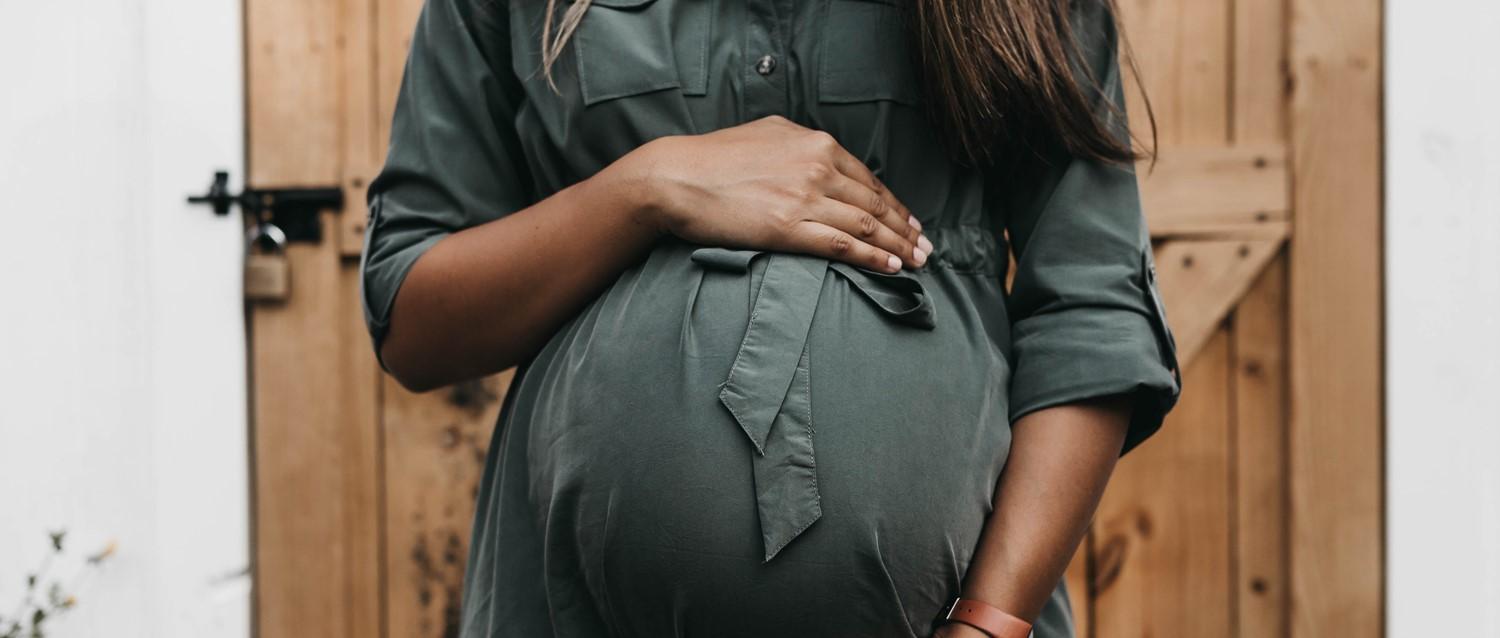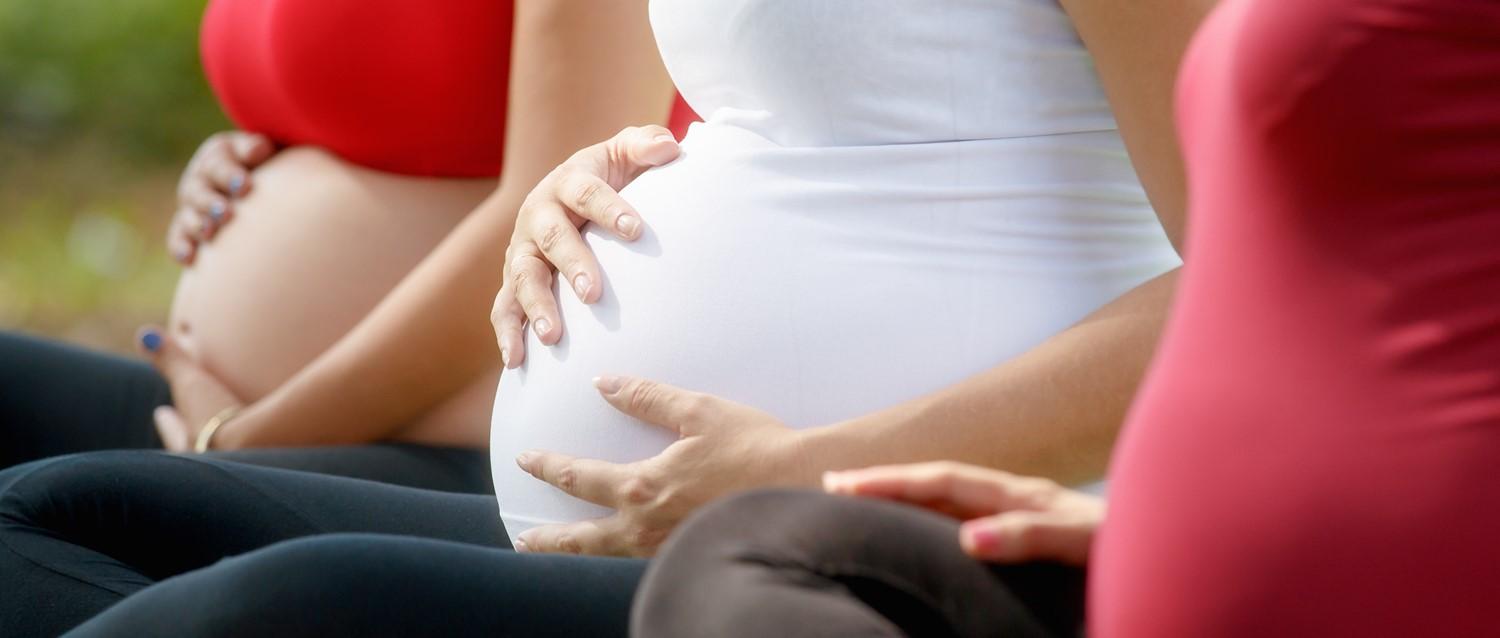
Why you shouldn’t use a foetal doppler at home when you’re pregnant
Peer reviewed by Dr Krishna Vakharia, MRCGPAuthored by Lydia SmithOriginally published 24 May 2023
Meets Patient’s editorial guidelines
- DownloadDownload
- Share
- Language
- Discussion
Being pregnant can be an exciting but nerve-wracking time. You might be looking forward to becoming a parent, but feel anxious about the health of your baby. It can be tempting to try out a foetal doppler, which allows you to hear what’s going on inside your bump - but experts warn these devices can be dangerous.
In this article:
Continue reading below
What is a foetal doppler and why are they dangerous?
Dopplers are small, battery-operated devices that send out high-frequency ultrasound waves. There's usually a handset, a built-in speaker and a transducer that's placed against your bump. The ultrasound waves pass through your skin and tissue and then bounce back, before being translated into sound. It's a similar process to being scanned in pregnancy but instead of pictures, it's sound.
Although dopplers seem harmless, health professionals warn that these devices are increasing the risk of stillbirths. Instead of going straight to hospital when they're worried about their babies, mothers are using dopplers to check their baby’s heartbeat - but these devices are very unreliable when not used by a trained professional.
When using one, it’s easy to mistake your own heartbeat and the pulsing of the placenta for the baby’s heartbeat. This means that when you listen in, you may not be hearing the baby’s heartbeat at all and can be falsely reassured.
Monitoring your baby’s movements
Hearing a heartbeat is not a reliable way to tell if a baby is well. Instead, monitoring changes in movements and reporting any reduction immediately is the best way to be safe. Feeling a baby move during pregnancy is a good sign, but if the baby moves less, it can be an important warning sign that the baby isn’t well.
Professor Alexander Heazell, professor of obstetrics and director of the Tommy's Stillbirth Research Centre at the University of Manchester, has found that more women are coming into hospital too late after feeling their babies move less.
Recently, she says, two babies died by the time their mothers were seen by a medical team.
“There’s little regulation for the development, testing and marketing of apps and devices sold for home use and it’s hugely concerning to find some people rely on them for the safety of their baby,” she says.
“Even if you detect a heartbeat it does not mean that a baby is necessarily well. It is important that if you are concerned about your baby’s wellbeing that you act as quickly as possible if you notice a change.”
The pregnancy charity Tommy’s is urging expectant parents to seek advice from a medical professional immediately if they notice any changes in their baby’s movement.
Tommy’s midwifery manager Amina Hatia says: “If you’re worried about your baby or notice a change in your baby's movements, contact your midwife or maternity unit immediately, whatever time of day or night it is. They are open 24 hours a day, seven days a week, even through strikes.
“Please don’t be tempted to use and rely on these home devices, it is dangerous to do so. Only a trained health professional can see if your baby is okay. If you’ve had a check-up and then your baby's movements have become reduced again, don't hesitate to call again. No matter how many times this happens, always seek medical advice."
Why feeling your baby move is so important
You should start to feel your baby move between around 16 to 24 weeks of pregnancy, but if this is your first baby, you might not feel movements until 20 weeks or after. If you haven’t felt your baby move by then, speak to your midwife - they will be able to check your baby’s heartbeat and movements. You should feel your baby move right up to and during labour.
You don’t need to count the number of exact kicks or movements, but it can help to get to know your baby’s normal movements throughout the day. They may get into a pattern, for example, moving more after you’ve eaten or in the morning or evening.
Elizabeth Hutton is the chief executive of Kicks Count, a baby movement resource and awareness campaign.
"The false reassurance using dopplers gives is our concern. If you saw a person collapsed in the street would you check their pulse and walk away? No, you’d probably call an ambulance because this person is clearly unwell, even though they have a heartbeat. It is the same with a baby," she says.
"If a baby’s movements change, it can be a sign that they are unwell. All a heartbeat tells you is the baby is currently alive, which is the only time something can be done to help a baby in distress. If you wait until you can’t find a heartbeat it’s too late.
If you are ever worried about your baby or their movements, it’s important to speak to your midwife or go to your hospital’s maternity unit. It’s always better to get checked out, even if you’re unsure whether to go.
Patient picks for Antenatal care

Pregnancy
What to expect at your first ultrasound scan
An ultrasound is a chance to check up on your baby and ensure they are healthy. It's a sneak peek, and getting that first glimpse of your little one can be really exciting for expectant parents. However, if you're heading for your first ultrasound with no idea what to expect, the experience can be daunting. So, let's put your mind at ease and answer all those niggly questions.
by Emily Jane Bashforth

Pregnancy
What do you learn in antenatal classes and what are the benefits?
Becoming a parent can be a very overwhelming experience and looking after a newborn is often a steep learning curve. Antenatal classes can be a great way for new parents to prepare for the arrival of their baby, but what exactly do these classes cover, and what are the benefits of antenatal classes?
by Lydia Smith
Continue reading below
Article history
The information on this page is peer reviewed by qualified clinicians.
24 May 2023 | Originally published
Authored by:
Lydia SmithPeer reviewed by
Dr Krishna Vakharia, MRCGP

Ask, share, connect.
Browse discussions, ask questions, and share experiences across hundreds of health topics.

Feeling unwell?
Assess your symptoms online for free
Sign up to the Patient newsletter
Your weekly dose of clear, trustworthy health advice - written to help you feel informed, confident and in control.
By subscribing you accept our Privacy Policy. You can unsubscribe at any time. We never sell your data.